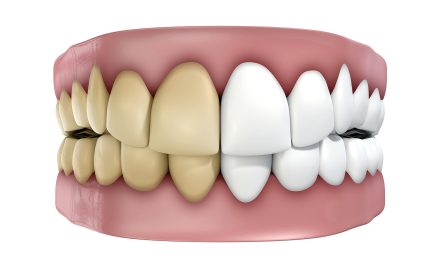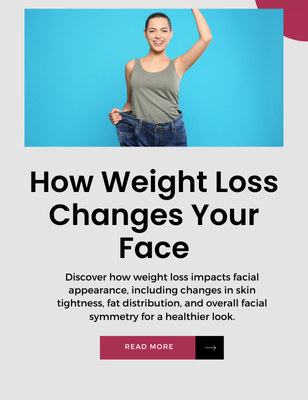Taking care of your teeth is key to a healthy smile. Brushing and flossing daily helps stop cavities from forming. Good dental habits and regular checkups can prevent most tooth decay.
Eating less sugar and more fruits and veggies also keeps teeth strong. Drink plenty of water to wash away food bits that can cause decay. Chewing sugar-free gum after meals boosts saliva, which fights cavity-causing bacteria.
Seeing the dentist twice a year is vital for oral health. They can spot early signs of decay and fix small issues before they grow. Dental visits also give you tips on better cleaning at home.
Key Takeaways
- Brush twice daily, floss once, and see the dentist regularly
- Eat a balanced diet low in sugar and high in fruits and vegetables
- Use fluoride toothpaste and drink fluoridated water to strengthen tooth enamel
Understanding Cavities and Dental Health
Cavities are a common dental problem that can lead to serious health issues if left untreated. Good oral care habits and regular dental visits are key to preventing cavities and maintaining overall wellness.
The Causes of Cavities
Cavities form when bacteria in the mouth produce acid that eats away at tooth enamel. This process is called dental caries. Sugar and starch in foods feed these bacteria, increasing acid production.
Poor oral hygiene allows plaque to build up on teeth. Plaque is a sticky film of bacteria that forms on teeth and gums. If not removed regularly, it can harden into tartar.
Certain factors increase cavity risk:
- Dry mouth
- Eating disorders
- Acid reflux
- Frequent snacking
- Drinking sugary beverages
Regular brushing, flossing, and dental cleanings help remove plaque before it can cause damage. Using fluoride toothpaste strengthens tooth enamel, making it more resistant to acid attacks.
The Impact of Oral Health on Overall Wellness
Oral health is closely linked to overall health and well-being. Poor dental health can affect many aspects of a person’s life, including their mental health.
Untreated cavities can lead to:
- Pain and difficulty eating
- Tooth loss
- Infections that spread to other parts of the body
- Low self-esteem and social isolation
Good oral health habits support overall wellness. They help prevent gum disease, which is linked to heart disease and diabetes. Maintaining a healthy mouth also allows for proper nutrition and can boost confidence in social situations.
Regular dental check-ups can catch problems early. Dentists can spot signs of other health issues during exams. This makes dental visits an important part of overall healthcare.
Daily Oral Hygiene Practices
Good dental habits are key to preventing cavities. Proper brushing, flossing, and using mouthwash help remove plaque and food particles. These daily practices work together to keep teeth and gums healthy.
Brushing Techniques
Brush teeth twice a day for two minutes each time. Use a soft-bristled toothbrush and fluoride toothpaste. Hold the brush at a 45-degree angle to the gums.
Gently move the brush back and forth in short strokes. Brush the outer, inner, and chewing surfaces of all teeth. Don’t forget to brush the tongue to remove bacteria.
Replace toothbrushes every 3-4 months or sooner if bristles are frayed. Electric toothbrushes can be more effective at removing plaque than manual ones. They often have timers to ensure proper brushing duration.
Flossing Strategies
Floss at least once daily to clean between teeth where a toothbrush can’t reach. Use about 18 inches of floss, winding most around one middle finger and the rest around the other.
Hold the floss tightly between thumbs and forefingers. Guide it gently between teeth using a rubbing motion. When the floss reaches the gum line, curve it into a C shape against one tooth.
Slide it into the space between the gum and tooth. Repeat for all teeth, including the back side of the last tooth. Use fresh sections of floss as you move from tooth to tooth.
Mouthwash Usage
Rinse with an antimicrobial mouthwash after brushing and flossing. This helps reduce plaque, prevent gingivitis, and freshen breath.
Choose an alcohol-free mouthwash to avoid dry mouth. Look for products with fluoride to help strengthen tooth enamel. Swish the mouthwash around for 30 seconds before spitting it out.
Don’t eat or drink for 30 minutes after using mouthwash. This allows the active ingredients to work effectively. Use mouthwash at a different time than brushing to maximize fluoride exposure throughout the day.
Diet and Nutrition for Healthy Teeth
What you eat affects your teeth. Some foods can help keep teeth strong and cavity-free. Other foods may harm your teeth over time.
Foods to Enjoy
Good food choices can help prevent tooth decay. Calcium-rich foods build strong teeth. These include:
- Milk
- Cheese
- Yogurt
- Leafy greens
Crunchy fruits and veggies clean teeth as you chew. They also boost saliva flow. Good options are:
- Apples
- Carrots
- Celery
Nuts and seeds provide minerals that protect tooth enamel. Almonds and pumpkin seeds are great picks.
Drinking water throughout the day rinses away food bits and bacteria. It also keeps the mouth moist.
Foods to Avoid
Some foods and drinks can harm teeth. Sugary items feed bacteria that cause cavities. It’s best to limit:
- Candy
- Cookies
- Soda
- Fruit juices
Sticky foods cling to teeth. They’re hard to remove even with brushing. Watch out for:
- Dried fruits
- Caramel
- Gummy candy
Acidic foods and drinks can wear down tooth enamel. Use caution with:
- Citrus fruits
- Sports drinks
- Vinegar-based dressings
Sipping sugary or acidic drinks all day is extra harmful. It bathes teeth in damaging substances for long periods.
Professional Dental Care
Regular visits to the dentist play a key role in cavity prevention. Dental professionals have specialized tools and expertise to keep teeth healthy and spot issues early.
Regular Check-Ups
Dentists recommend check-ups every 6 months. These visits allow them to examine teeth, gums, and oral tissues for signs of decay or disease. X-rays may be taken to detect hidden problems.
Early detection of cavities means simpler, less costly treatments. Dentists can also give personalized advice on oral hygiene habits and diet to help prevent future cavities.
Regular exams are especially important for children and teens. Their teeth are still developing and may need extra care to stay cavity-free.
Professional Cleanings
Professional cleanings remove plaque and tartar buildup that regular brushing can’t reach. Dental hygienists use special tools to clean teeth thoroughly.
The cleaning process includes:
- Scaling to remove tartar
- Polishing to remove stains
- Flossing between teeth
These cleanings help prevent cavities by removing substances that feed cavity-causing bacteria. They also make teeth smoother, making it harder for plaque to stick.
After cleaning, teeth feel smooth and look brighter. This can boost confidence and encourage better at-home care.
Dental Sealants and Fluoride Treatments
Sealants and fluoride treatments provide extra protection against cavities. Sealants are thin, protective coatings applied to the chewing surfaces of back teeth. They block out food particles and bacteria that cause decay.
Fluoride treatments strengthen tooth enamel, making it more resistant to acid attacks. They can be applied as a gel, foam, or varnish during a dental visit.
These treatments are quick, painless, and highly effective at preventing cavities. They’re especially beneficial for children and people at high risk for tooth decay.
The Role of Saliva in Preventing Cavities
Saliva plays a crucial part in keeping teeth healthy and cavity-free. It helps clean the mouth, fights harmful bacteria, and repairs early tooth decay.
Stimulating Saliva Production
The body makes saliva all day, but certain activities can boost its flow. Chewing sugar-free gum or eating crunchy fruits and veggies stimulates saliva. Drinking water also helps keep the mouth moist.
Staying hydrated is key for making enough saliva. Aim to drink 6-8 glasses of water daily. Some medicines can reduce saliva, so talk to a doctor if dry mouth is an issue.
Reducing caffeine and alcohol intake can help too. These drinks can dry out the mouth. Breathing through the nose instead of the mouth also prevents saliva loss.
Saliva’s Protective Functions
Saliva does more than just wet the mouth. It contains minerals that protect tooth enamel from decay. These minerals, like calcium and phosphate, help rebuild weakened enamel.
Saliva also has antibacterial properties. It fights germs that cause cavities and gum disease. The constant flow of saliva washes away food particles and acids that harm teeth.
Another key role of saliva is neutralizing acids in the mouth. After eating, saliva helps bring the mouth’s pH back to normal. This stops acid from eating away at tooth enamel.
Saliva even contains enzymes that start breaking down food. This aids digestion and reduces the time food sits on teeth, lowering cavity risk.
Children’s Dental Health Tips
Good dental habits start early. Kids need guidance to develop proper oral care routines and learn about the importance of regular dental check-ups.
Teaching Kids about Oral Hygiene
Start teaching kids about oral hygiene as soon as their first tooth appears. Show them how to brush twice a day with a soft-bristled toothbrush and fluoride toothpaste. For children under 3, use a rice-sized amount of toothpaste. Kids 3-6 years old should use a pea-sized amount.
Make brushing fun by using colorful toothbrushes or playing music for two minutes. Teach proper brushing technique:
- Angle the brush at 45 degrees to the gums
- Gently move in small circular motions
- Brush all surfaces of each tooth
- Don’t forget to brush the tongue
Flossing should begin when two teeth touch. Help kids floss daily until they can do it on their own, usually around age 8-10.
The Importance of Pediatric Dental Visits
Regular dental visits are key for children’s oral health. The first visit should occur by age 1 or within 6 months of the first tooth appearing. These early visits help:
- Prevent cavities and gum disease
- Check for proper tooth development
- Address habits like thumb-sucking
- Provide fluoride treatments if needed
Pediatric dentists are trained to work with children and can make visits fun and stress-free. They teach kids about good oral hygiene and diet choices to prevent cavities.
Regular check-ups allow dentists to catch and treat problems early. This helps avoid more serious issues and costly treatments later on.
Addressing Common Dental Health Misconceptions
Many people have wrong ideas about dental health. These myths can lead to poor oral care habits. Let’s clear up some common misunderstandings.
Myth: Sugar is the only cause of cavities.
While sugar plays a big role, it’s not the only culprit. Tooth decay can also come from starches and acids in food.
Myth: Brushing harder cleans teeth better.
Brushing too hard can hurt gums and wear down tooth enamel. Gentle, thorough brushing is best.
Myth: Only kids get cavities.
Adults can get cavities too. As people age, receding gums can expose tooth roots to decay.
Myth: You don’t need to floss if you brush well.
Flossing reaches places a toothbrush can’t. It helps prevent cavities between teeth and gum disease.
Myth: White teeth are always healthy.
White teeth can still have cavities or gum problems. Regular dental check-ups are important for everyone.
Myth: You only need to see a dentist if you have pain.
Regular dental visits can catch problems early, before they cause pain. This can save time and money in the long run.
By understanding these facts, people can make better choices for their dental health.
Advancements in Cavity Prevention
New products and treatments have made preventing cavities easier than ever. These innovations target the root causes of tooth decay and give people more tools to protect their teeth.
Innovative Dental Products
Modern toothpastes now contain special ingredients to fight cavities. Many brands add fluoride and other minerals that strengthen tooth enamel. Some toothpastes even have enzymes that break down plaque.
Electric toothbrushes have also improved. New models have timers and pressure sensors to ensure proper brushing. Some connect to smartphone apps that track brushing habits.
Water flossers are another helpful tool. They use a stream of water to clean between teeth. This makes flossing easier for many people.
Dental sealants have become more common too. Dentists apply these thin coatings to the chewing surfaces of back teeth. Sealants create a barrier against decay-causing bacteria.
Emerging Dental Treatments
Dentists now use special gels and varnishes to prevent cavities. These products contain high levels of fluoride. They’re applied during dental visits to strengthen teeth.
Laser treatments are a new way to detect early signs of decay. Dentists can spot and treat small cavities before they get worse.
Some dentists now offer probiotic treatments. These good bacteria may help fight the harmful bacteria that cause cavities.
Remineralization therapy is another new approach. It uses special products to replace lost minerals in teeth. This can reverse early stages of tooth decay.
The Connection Between Mental Health and Oral Health
Mental health and oral health are closely linked. People with mental health issues often face challenges in maintaining good oral hygiene.
Poor oral health can negatively impact a person’s mental well-being. Dental problems like cavities and gum disease can cause pain and discomfort, leading to stress and anxiety.
Conversely, mental health conditions can affect oral health. Depression may reduce motivation for self-care, including brushing and flossing regularly.
Some medications for mental health disorders can cause dry mouth, increasing the risk of tooth decay.
Key points:
- Mental health issues can lead to neglect of oral hygiene
- Dental problems can worsen mental health symptoms
- Certain psychiatric medications may impact oral health
Studies show that individuals with severe mental illnesses have higher rates of dental caries and tooth loss. This highlights the need for integrated care approaches.
Healthcare providers should consider the connection between mind health and oral health. Regular dental check-ups are important for those with mental health conditions.
Encouraging good oral hygiene habits can positively impact both dental and mental well-being. Simple steps like daily brushing and flossing can make a big difference.
Tips for Maintaining Oral Health During Travel
Keeping up with oral hygiene while traveling can be tricky. But it’s important to maintain good habits to prevent cavities and other dental issues.
Pack a travel-sized toothbrush, toothpaste, and floss in your carry-on bag. This ensures you have dental supplies even if your luggage is delayed.
Brush teeth twice daily, just like at home. If you can’t brush after meals, rinse your mouth with water to wash away food particles.
Stay hydrated by drinking plenty of water. This helps maintain saliva flow, which is vital for oral health.
Be careful with sugary drinks and snacks. Limit these to mealtimes rather than snacking throughout the day.
Chew sugar-free gum after meals when brushing isn’t possible. This stimulates saliva production and helps clean teeth.
If traveling to areas with unsafe tap water, use bottled water for brushing teeth and rinsing your toothbrush.
Pack healthy snacks like fresh fruits and vegetables. These are better for your teeth than sugary or starchy options.
Consider bringing a small bottle of alcohol-free mouthwash for extra freshness and protection against bacteria.
If you wear a retainer or night guard, don’t forget to pack and use it as usual during your trip.
Overcoming Dental Anxiety
Many people feel nervous about going to the dentist. But there are ways to manage these fears and get the dental care you need.
Coping Strategies
Deep breathing can help calm nerves before and during dental visits. Try taking slow, deep breaths for a few minutes. Distraction techniques also work well. Bring headphones to listen to music or audiobooks during your appointment.
Ask your dentist questions about procedures. Understanding what will happen can ease anxiety. Request breaks if you feel overwhelmed. Most dentists are happy to pause treatment when needed.
Some find comfort in bringing a trusted friend or family member to appointments. Their presence can provide support and distraction.
When to Seek Professional Help
If dental anxiety prevents you from getting needed care, talk to a mental health expert. They can teach you ways to manage fear and stress. Cognitive behavioral therapy helps many people overcome dental phobias.
Some dentists specialize in treating anxious patients. They use extra calming methods and may offer sedation. Dental apps can help patients overcome anxiety through education and relaxation tools.
If anxiety causes panic attacks or severe distress, medication might help. Talk to your doctor about anti-anxiety drugs for dental visits.
Frequently Asked Questions
Preventing cavities involves proper diet, dental treatments, and daily oral care routines. Fluoride plays a key role in strengthening teeth. Early dental caries can often be reversed with the right interventions.
What dietary habits contribute to strong tooth enamel?
A diet rich in calcium and phosphorus helps build strong tooth enamel. Dairy products, leafy greens, and nuts are good sources of these minerals.
Limiting sugary and acidic foods reduces enamel erosion. Drinking water instead of sugary drinks also promotes oral health.
Chewing sugar-free gum after meals can increase saliva flow. This helps neutralize acids and wash away food particles.
Are dental sealants effective in preventing cavities in both children and adults?
Dental sealants are very effective at preventing cavities, especially in children. They create a protective barrier on the chewing surfaces of back teeth.
For adults, sealants can still be beneficial. They work best on teeth without existing decay or fillings.
Sealants can last several years with proper care. Regular dental check-ups help ensure they remain intact and effective.
What practices should be included in a daily oral hygiene routine to prevent cavities?
Brush teeth twice daily with fluoride toothpaste. Use a soft-bristled brush and gentle circular motions.
Floss at least once a day to remove plaque between teeth. Consider using an interdental brush for wider gaps.
Rinse with an alcohol-free mouthwash to kill bacteria and freshen breath. This can be done after brushing and flossing.
How does fluoride toothpaste aid in cavity prevention, and are there any alternatives?
Fluoride toothpaste strengthens tooth enamel, making it more resistant to acid attacks. It can also remineralize early stages of tooth decay.
Alternatives include hydroxyapatite toothpaste, which can also remineralize teeth. Xylitol-containing products may help reduce cavity-causing bacteria.
Natural options like neem or green tea extracts show promise. More research is needed to confirm their effectiveness.
Can the progression of early dental caries be reversed, and if so, how?
Early dental caries can often be reversed through remineralization. This process restores minerals to weakened tooth enamel.
Using fluoride toothpaste and rinses helps remineralize teeth. Professional fluoride treatments can provide a stronger dose.
Improving oral hygiene and reducing sugar intake are crucial. These steps help create an environment where teeth can heal.
What professional dental treatments are recommended for optimal cavity prevention?
Regular dental cleanings remove plaque and tartar buildup. This helps prevent cavities and gum disease.
Fluoride treatments applied by a dentist provide extra protection. These are especially helpful for people at high risk of cavities.
Dental sealants can be applied to protect tooth surfaces. X-rays help detect early signs of decay before cavities form.
Conclusion
Taking care of your teeth is key to stopping cavities. Brush twice a day with fluoride toothpaste. Floss daily to clean between teeth.
Eat less sugary foods and drinks. Visit your dentist regularly for checkups and cleanings.
Use fluoride rinses or get fluoride treatments if your dentist suggests them. Drink plenty of water to wash away food bits and bacteria.
Dental sealants can protect teeth from decay. Ask your dentist if they’re right for you.
A healthy diet helps keep teeth strong. Eat foods with calcium and vitamins. Avoid snacking all day, which leaves sugar on teeth.
Good habits make a big difference. Start caring for teeth early in life. Keep it up as you get older.
With the right care, you can have healthy teeth for life. Small steps each day add up to big results over time.















